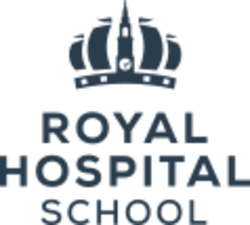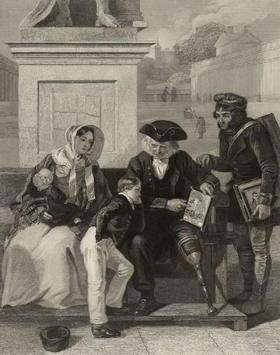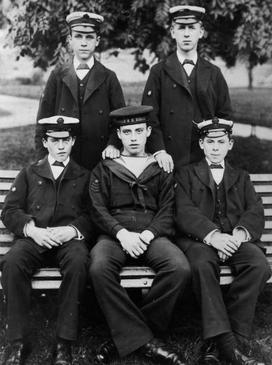Royal Hospital School facts for kids
Quick facts for kids The Royal Hospital School, Holbrook |
||||||||||
|---|---|---|---|---|---|---|---|---|---|---|
 |
||||||||||
| Location | ||||||||||
|
,
,
IP9 2RX
England
|
||||||||||
| Coordinates | 51°58′20″N 1°08′59″E / 51.9723°N 1.1497°E | |||||||||
| Information | ||||||||||
| School type | Public School Independent boarding and day Royal Foundation Royal Navy Heritage |
|||||||||
| Mottoes | 'Celebrating Britain's seafaring heritage through educating for the future' "The Cradle of the Navy" (Latin: Ease after Toil) |
|||||||||
| Religious affiliation(s) | Christian | |||||||||
| Established | 1694 royal charter 1712 Greenwich 1933 Holbrook |
|||||||||
| Founders | William III and Mary II | |||||||||
| Sister school | College of William and Mary | |||||||||
| Local authority | Suffolk | |||||||||
| Trust | Greenwich Hospital | |||||||||
| Department for Education URN | 124889 Tables | |||||||||
| Chair | Chair of Governors Mr. Trevor Rowell |
|||||||||
| Director | Director of Greenwich Hospital Mrs. Deirdre Mills |
|||||||||
| Headmaster | Irfan Latif | |||||||||
| Chaplain | Rev. K Page | |||||||||
| Staff | 72 | |||||||||
| Gender | Coeducational | |||||||||
| Age | 11 to 18 | |||||||||
| Enrolment | c. 670 | |||||||||
| Campus type | Rural | |||||||||
| Houses | 9
Houses:
|
|||||||||
| Colour(s) |
School Scarf |
|||||||||
| Slogan | Navigating success | |||||||||
| Song | Eternal Father, Strong to Save - Royal Navy Hymn | |||||||||
| Sports | Athletics, Cricket, Hockey, Rugby, Netball, Basketball, Climbing, Cross Country, Fitness, Golf, Football, Horse Riding, Kickboxing, Sailing, Swimming, Tennis. | |||||||||
| Publication | "The Magazine" "The Gidge" - Alumni Magazine |
|||||||||
| Feeder to | Historically: Royal Navy British Army Royal Air Force Royal Military Academy Sandhurst Britannia Royal Naval College |
|||||||||
| Affiliation | HMC (The Heads' Conference) | |||||||||
| Alumni | Royal Hospital School Association | |||||||||
| Charitable Association | Greenwich Hospital | |||||||||
| Website | http://www.royalhospitalschool.org | |||||||||
The Royal Hospital School (also known as "RHS") is a special school in the United Kingdom. It is a boarding and day school that charges fees. RHS has strong naval traditions. Students aged 11 to 18 (Years 7 to 13) can join. They usually take an entrance exam to get in.
The school is in Holbrook, near Ipswich, Suffolk, England. It has a beautiful campus with buildings in the Queen Anne style. The school covers 200 acres (about 0.8 square kilometers) of countryside. It looks over the River Stour, Suffolk in an area called Constable Country.
The Royal Hospital School started with a special permission from the King and Queen in 1712. It was first in Greenwich Hospital in London. Then, in 1933, it moved to East Anglia.
During World War One, many former RHS students served in the Royal Navy. About 1,000 of them were at the Battle of Jutland in 1916. Sadly, at least 101 former students died in that battle.
RHS is the only independent boarding school in the UK that always gets to fly the Queen's Banner. It also flies its own special flag, the Royal Hospital School Blue Ensign. Students at RHS can wear Royal Navy uniforms for special events. Only one other UK school has this privilege.
Contents
What Makes RHS Special?
The school keeps many sea traditions alive. Students wear Royal Navy uniforms for important events. The school is owned by a charity called Greenwich Hospital. This charity helps families with a seafaring background by offering financial aid.
RHS also helps students become good leaders. The Combined Cadet Force (CCF) and the Duke of Edinburgh's Award Scheme are very popular activities. The CCF even has a special section for engineering.
The Royal Hospital School works with The College of William and Mary in Virginia, USA. RHS offers different ways to board, including weekly, three-night, and flexible options.
Students at RHS
As of May 2025, about 670 students attend the school. Around 360 students live at the school full-time or for part of the week. It is one of the biggest boarding schools in East Anglia.
About 100 students come from 28 different countries. The school has special teachers to help international students. They also offer English as an Additional Language support.
Learning at RHS
The school follows the National Curriculum for different age groups. They offer many subjects for students to study.
| Subject Name | Years taken | Qualification Type |
|---|---|---|
| Compass | Y7 - Y9 | N/A |
| PSHE | Y10 - Y13 | N/A |
| English Language | Y7 - Y11 (Compulsory) Y12 - Y13 | GCSE, A-level |
| English Literature | Y7 - Y11 (Compulsory) Y12 - Y13 | GCSE, A-level |
| Mathematics | Y7 - Y11 (Compulsory) Y12 - Y13 | GCSE, A-level |
| Further Mathematics | Y12 - Y13 | A-level |
| French | Y7 - Y9 (Compulsory OR Spanish) Y10 - Y13 | GCSE, A-level |
| Spanish | Y7 - Y9 (Compulsory OR French) Y10 - Y13 | GCSE, A-level |
| Science (Combined) | Y7 - Y9 (Compulsory) Y10 - 11 (Combined Science) | GCSE |
| Geography | Y7 - Y9 (Compulsory) Y10 - Y13 | GCSE, A-level |
| History | Y7 - Y9 (Compulsory) Y10 - Y13 | GCSE, A-level |
| Design Technology | Y7 - Y8 (Compulsory) Y9 - Y13 | GCSE, A-level |
| Art | Y7 - Y8 (Compulsory) Y9 - Y13 | GCSE, A-level |
| Music | Y7 - Y8 (Compulsory) Y9 - Y13 | GCSE, A-level |
| Drama | Y7 - Y8 (Compulsory) Y9 - Y13 | GCSE, A-level |
| Computing | Y7 - Y9 (Compulsory) Y10 - Y13 | GCSE, A-level |
| Religious Studies | Y7 - Y9 (Compulsory) Y10 - Y13 | GCSE, A-level |
| Latin | Y7 - Y8 (Compulsory) Y9 - Y13 | GCSE, A-level |
| Biology | Y10 - Y11 (Separate Science) Y12 - Y13 | GCSE, A-level |
| Chemistry | Y10 - Y11 (Separate Science) Y12 - Y13 | GCSE, A-level |
| Physics | Y10 - Y11 (Separate Science) Y12 - Y13 | GCSE, A-level |
| Enterprise and Entrepreneurship | Y12 - Y13 | BTEC |
| Business Studies | Y10 - Y13 | GCSE, A-level |
| Media Studies | Y10 - Y13 | GCSE, BTEC |
| Physical Studies | Y10 - Y13 | GCSE, BTEC |
| Psychology | Y12 - Y13 | A-level |
| Politics | Y12 - Y13 | A-level |
Activities and Clubs
Combined Cadet Force (CCF)
When students reach Year 9, they must join the Combined Cadet Force (CCF). CCF helps students learn to be responsible, self-reliant, and strong. It also helps them develop leadership skills. In Year 9, students learn basic leadership and outdoor skills. In Year 10, they can choose a special section like the Royal Navy, Royal Marines, Army, or Royal Air Force.
In CCF, students can do many activities. These include first aid, navigation, shooting, and outdoor survival. They can also compete against other schools. There are chances for sailing, flying, rock-climbing, and power-boating. The school has its own shooting range for different types of rifles.
Duke of Edinburgh's Award
All Year 9 students also join the "Duke of Edinburgh's Award Scheme." This program involves expeditions. Bronze expeditions happen nearby, Silver ones in the Peak District, and Gold ones in Scotland.
School History
The Royal Hospital School started in 1712 at Greenwich Hospital in London. This building is now the National Maritime Museum. The school was created to help and educate children whose parents were sailors in the Royal or Merchant Navies. It was once the biggest school for learning about navigation and sailing in the country.
The school moved to Holbrook in 1933. Most of the buildings there are now special historic buildings. The chapel is also a very important historic building.
For many years, only children or grandchildren of sailors could attend RHS. Until the 1950s, boys had to plan to work in the Royal or Merchant Navies. So, the lessons focused a lot on sea-related topics. These rules are no longer in place, but the school still keeps many naval traditions. This includes wearing naval uniforms and having formal parades.
In 1991, girls started attending the school. At first, girls had a different uniform, but now it matches the boys' uniform. In 1992, the first female Head of School was chosen.
In 1994, the whole school went to Greenwich Hospital. They had a parade for Queen Elizabeth II to celebrate the Hospital's 300th birthday. In 2012, the school celebrated its own 300th birthday. They opened a Heritage Centre and published a special book.
Greenwich Hospital's Role
The school was started by special permission from the King and Queen. It is supported by Greenwich Hospital. The hospital helps many students by providing financial aid. The school also offers scholarships for academics, sports, music, and sailing. They give discounts to children of sailors in the Royal Navy, Royal Marines, or Merchant Navy.
School Traditions
Many traditions at the Royal Hospital School are linked to the Royal Navy and the sea. For example, important naval events are celebrated. The school has sailing programs, a special guard, and a marching band.
Besides their regular school uniform, both boys and girls wear Naval uniforms for special events like "Divisions." Divisions are formal parades where each house marches on the parade square. The marching band plays music, and a special Guard of Honour takes part. Older students who are leaders wear special badges and uniforms.
The Royal Hospital School |
 |
 |
 |
 |
||||||||||||||||||
|---|---|---|---|---|---|---|---|---|---|---|---|---|---|---|---|---|---|---|---|---|---|---|
| Head of school |
Deputy head of school |
School Chief | House Petty officer |
|||||||||||||||||||
Music at RHS
Music is a big part of life at the Royal Hospital School. All students attend a weekly singing practice. The school opened a new music building in 2008.
The Royal Hospital School marching band is very important. It is run by a former member of the Royal Marines Band Service. The band's style is like the Royal Marines. When the school has parades, the band forms its own large group. The band has traveled to places like Sri Lanka and the USA. They play marches like Heart of Oak and A Life on the Ocean Wave.
Band members were part of the first performance of Benjamin Britten's Noye's Fludde in 1958. The chapel has a large organ that was put in in 1933.
School Songs
- "Go Forth With God"
- "Eternal Father, Strong to Save"
- "Holbrook" (composed by Benjamin Britten)
- "Holbrook March" (composed by Lt Col Sir Vivian Dunn)
- "Jerusalem"
School Events
- Burns Night
- House Shout (singing competition)
- School Plays and Musicals
- Music Concerts
- Christmas Dinner
- Alumni Reunion (for former students)
- Trafalgar Dinner
- Speech Day
- Remembrance Sunday
- Leavers Ball
School Slang
Over its 300 years, RHS has developed its own special words. Many come from navy terms.
- "Divis" or "Divvies" means Divisions (the parades).
- "DH" means Dining Hall.
- "Civvies" means civilian clothing (not uniform).
- "Chiefs" means school prefects (student leaders).
- "Congo" means congregational practice (singing practice).
- "Mess" is a navy word for a meal.
The Chapel
The chapel is very important at RHS. Students must attend a short service every Tuesday and Thursday morning. Singing practice is also held in the chapel every Saturday morning. Most Sundays, there is a service for boarding students. Often, a student musician plays music during the service. The chapel is a special historic building.
Royal Connections
The Royal Hospital School has links with the British royal family. These links include the school's special permission from the King and Queen, and the King's and Queen's Banners.
Many members of the royal family have helped the school. Queen Mary II was very involved in the school's early days.
- William III and Mary II were the first to support the school.
- Queen Anne gave money from Captain Kidd's confiscated properties.
- George II gave money from the Earl of Derwentwater's confiscated properties.
- George VI laid a special stone at Holbrook in 1928.
- Queen Elizabeth The Queen Mother presented a special Royal Banner to the school.
School Houses
All 11 Houses at the Royal Hospital School are named after famous sailors.
- Blake – for Year 7 students (boarding and day)
- St Vincent – for boys in Years 8–12 (boarding)
- Hawke – for boys in Years 8–12 (boarding)
- Collingwood – for boys in Years 8–12 (boarding)
- Drake – for students in Years 8–12 (day)
- Howe – for girls in Years 8–12 (boarding)
- Anson – for girls in Years 8–12 (boarding)
- Hood – for girls in Years 8–12 (boarding)
- Raleigh – for students in Years 8–12 (day)
- Cornwallis – for students in Years 8–12 (day)
- Nelson – for Year 13 students (boarding and day)
Sports at RHS
The school has sports competitions between houses. Students can also join inter-school competitions. Some former students have become professional athletes.
Here are the main sports played throughout the year:
- Autumn Term: Boys – rugby and sailing, Girls – hockey and sailing
- Spring Term: Boys – hockey, cross country, rugby 7s, and sailing, Girls – netball, cross country, and sailing
- Summer Term: Boys – cricket, athletics, tennis, and sailing, Girls – cricket, tennis, athletics, and sailing
The school has large sports fields, an all-weather pitch, tennis and netball courts, squash courts, a sports hall, and a fitness room. There is also a climbing wall, indoor pool, and golf course. Sailing is a very popular sport, and the school is known as one of the best sailing schools in the country. Many students represent their countries in sailing events. The school also offers sailing trips abroad every two years.
Royal Hospital School Association
The Royal Hospital School Association (RHSA) is a group for former students and staff. It started in 1925 for boys only, but in 1992, it changed to include both male and female former students. The association sends out a newsletter to keep members updated. They also have an annual reunion at the school in June.
Famous Former Students
Many people who went to RHS have achieved great things. Here are a few examples:
- Malcolm Cooper (1947–2001) – An Olympic gold medalist in shooting.
- John Deane (1800–1884) and Charles Deane – They invented the diving helmet.
- Ernest Joyce, AM (1875–1940) – An explorer who went to Antarctica.
- Admiral Arthur Phillip (1738–1814) – He founded Sydney, Australia.
- Peter Richards (1978–) - A rugby player for England.
- Reece Topley (1994–) – An England cricketer.
- Hannah Stodel, (1985–) – A Paralympian.
Notable Staff
Some famous people have also worked at RHS:
- Edward Riddle, FRAS (1786–1854) – A well-known astronomer and math teacher.
- The Revd George Fisher, FRS, FRAS (1794–1873) – An astronomer and Arctic explorer.
- T/Sub-Lieut.John Herbert Babington, GC, OBE – A headmaster who received a special award for bomb disposal work.
See also
 In Spanish: Royal Hospital School para niños
In Spanish: Royal Hospital School para niños
- Christ's Hospital
- Pangbourne College
- Welbeck College
- Eton College
 | Emma Amos |
 | Edward Mitchell Bannister |
 | Larry D. Alexander |
 | Ernie Barnes |




